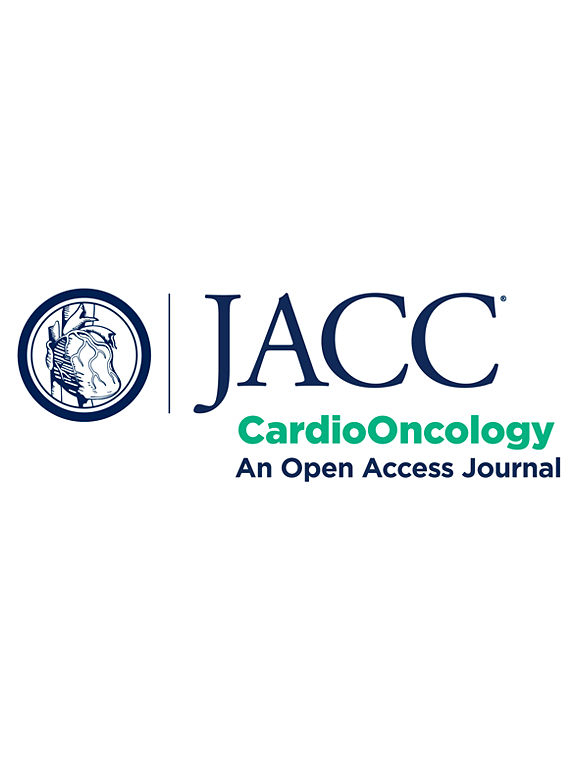缺血损伤通过加速造血老化驱动新生肿瘤生长
IF 12.8
1区 医学
Q1 CARDIAC & CARDIOVASCULAR SYSTEMS
引用次数: 0
摘要
外周动脉疾病患者患癌症的风险增加。造血干细胞和祖细胞(HSPCs)的衰老相关变化,包括炎症和骨髓生成增加,与心血管疾病和癌症都有关系,但它们对心血管疾病驱动的肿瘤进展的贡献尚不清楚。目的本研究旨在研究外周缺血后肿瘤的生长和HSPC骨髓腔室随之发生的变化,以揭示造血功能改变促进癌症的机制。方法观察C57BL/6J小鼠后肢缺血(HLI)或假手术后乳腺癌(E0771)的生长情况。流式细胞术检测肿瘤免疫微环境、循环免疫细胞、HSPC室。采用下一代单细胞RNA和转座酶可及的骨髓祖细胞染色质测序测定来评估癌症和外周缺血的独特和协同的转录组学和表观遗传变化。通过骨髓移植研究了缺血诱导的HSPCs及其髓系后代表观遗传重编程对肿瘤进展和持久性的功能影响。结果外周血缺血增加单核细胞和中性粒细胞的输出,以牺牲淋巴细胞为代价,由CD150hi骨髓偏向造血干细胞的转变驱动。这与肿瘤的加速生长和骨髓细胞(单核细胞、巨噬细胞、中性粒细胞)和调节性T细胞的富集有关。在单核细胞/树突状祖细胞亚群中,测序分析显示HLI和肿瘤诱导的炎症(NLRP3炎性体)和衰老相关的neogenin-1, thrombospontin -1)特征的转录和表观遗传富集也支持骨髓生成的增加。hli加速的肿瘤生长和骨髓歪斜通过骨髓移植传播,表明先天免疫反应的长期重编程。结论外周血缺血可增强造血干细胞的炎症反应和抗肿瘤免疫功能,促进乳腺肿瘤的生长。本文章由计算机程序翻译,如有差异,请以英文原文为准。
Ischemic Injury Drives Nascent Tumor Growth Via Accelerated Hematopoietic Aging
Background
Patients with peripheral artery disease have an increased risk of cancer development. Aging-associated changes in hematopoietic stem and progenitor cells (HSPCs), including inflammation and increased myelopoiesis, are implicated in both cardiovascular disease and cancer, but their contributions to cardiovascular disease–driven tumor progression are unclear.
Objectives
This study sought to study tumor growth after peripheral ischemia and consequent changes within the HSPC bone marrow compartment to uncover mechanisms through which altered hematopoiesis promotes cancer.
Methods
Mammary cancer (E0771) growth was monitored in C57BL/6J mice after hind limb ischemia (HLI) or sham surgery. The tumor immune microenvironment, circulatory immune cells, and HSPC compartment were assessed by flow cytometry. Next-generation single-cell RNA and assay for transposase-accessible chromatin sequencing of bone marrow progenitors was performed to assess the distinct and synergistic transcriptomic and epigenetic changes of cancer and peripheral ischemia. The functional impact on tumor progression and persistence of ischemia-induced epigenetic reprogramming of HSPCs and their myeloid progeny was examined by bone marrow transplantation.
Results
Peripheral ischemia increased monocyte and neutrophil output at the expense of lymphocytes, driven by a shift toward CD150hi myeloid-biased hematopoietic stem cells. This was associated with accelerated cancer growth and enrichment of tumors with myeloid cells (monocytes, macrophages, neutrophils) and regulatory T cells. Increased myelopoiesis was also supported by sequencing analyses showing HLI and tumor-induced transcriptional and epigenetic enrichment for inflammatory (NLRP3 inflammasome) and aging-associated neogenin-1, thrombospondin-1) signatures in subsets of monocyte/dendritic progenitors. HLI-accelerated tumor growth and myeloid-skewing was transmissible via bone marrow transplantation, indicating long-term reprogramming of innate immune responses.
Conclusions
Peripheral ischemia enhances inflammaging of hematopoietic stem cells and long-lasting alterations to antitumoral immunity, accelerating breast tumor growth.
求助全文
通过发布文献求助,成功后即可免费获取论文全文。
去求助
来源期刊

Jacc: Cardiooncology
Multiple-
CiteScore
12.50
自引率
6.30%
发文量
106
期刊介绍:
JACC: CardioOncology is a specialized journal that belongs to the esteemed Journal of the American College of Cardiology (JACC) family. Its purpose is to enhance cardiovascular care for cancer patients by publishing high-quality, innovative scientific research and sharing evidence-based knowledge.
The journal aims to revolutionize the field of cardio-oncology and actively involve and educate professionals in both cardiovascular and oncology fields. It covers a wide range of topics including pre-clinical, translational, and clinical research, as well as best practices in cardio-oncology. Key areas of focus include understanding disease mechanisms, utilizing in vitro and in vivo models, exploring novel and traditional therapeutics (across Phase I-IV trials), studying epidemiology, employing precision medicine, and investigating primary and secondary prevention.
Amyloidosis, cardiovascular risk factors, heart failure, and vascular disease are some examples of the disease states that are of particular interest to the journal. However, it welcomes research on other relevant conditions as well.
 求助内容:
求助内容: 应助结果提醒方式:
应助结果提醒方式:


